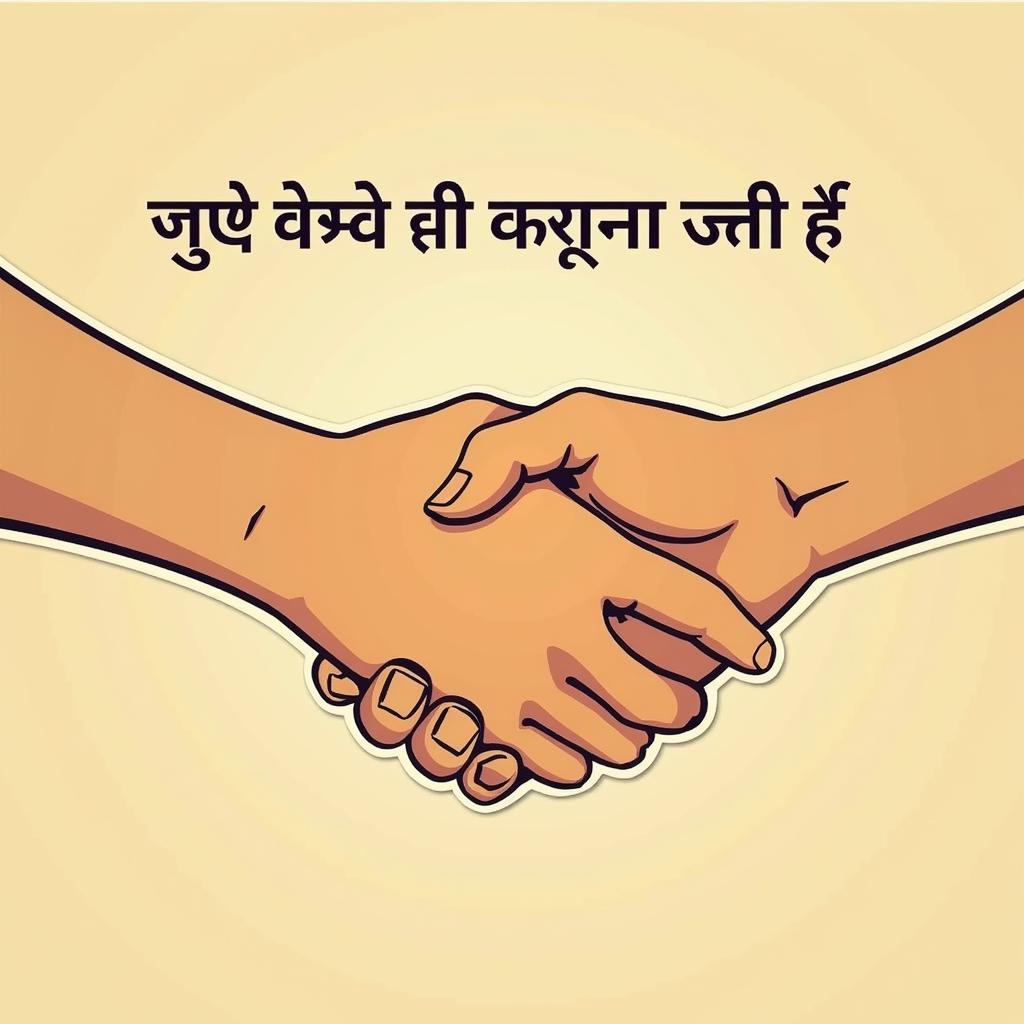“Kya aap mere dost banoge” is a common Hindi phrase, and understanding its meaning can be crucial for navigating social interactions. This article explores the meaning and cultural context of this phrase, offering insights into how it’s used and perceived in Hindi-speaking communities. We’ll also delve into the nuances of friendship in Indian culture and provide some helpful tips for building meaningful connections.
Deciphering “Kya Aap Mere Dost Banoge”
“Kya aap mere dost banoge” translates to “Will you be my friend?” in English. It’s a polite and formal way to ask someone to be your friend. While the literal translation is straightforward, the cultural implications can be more complex.  Will You Be My Friend in Hindi?
Will You Be My Friend in Hindi?
Formal vs. Informal Variations
The phrase “kya aap mere dost banoge” uses the formal “aap,” showing respect. A more informal version, used amongst peers or those younger than you, would be “kya tum mere dost banoge.” Understanding this distinction is important for using the appropriate language in different social situations.
The Cultural Context of Friendship in India
Friendship in India holds a special significance. It’s often seen as a lifelong bond, characterized by loyalty, trust, and mutual support. Families play a significant role in shaping friendships, and close friends are often treated like extended family members.  Indian Friendship Culture
Indian Friendship Culture
The Importance of Respect and Formality
The use of “aap” in “kya aap mere dost banoge” reflects the importance of respect and formality in Indian culture, especially when interacting with elders or those in positions of authority. Using polite language is a way to show consideration and build rapport.
How to Respond to “Kya Aap Mere Dost Banoge”
If someone asks you “kya aap mere dost banoge,” a simple “haan, main aapka dost banunga/banungi” (Yes, I will be your friend) is a suitable response. You can also express your enthusiasm by saying “bilkul” (absolutely) or “zaroor” (certainly).
Navigating Cultural Nuances
Even if you don’t intend to form a deep friendship, it’s generally considered polite to respond positively. Declining a friendship request directly can be perceived as rude. kya aap mere friend banoge
Building Meaningful Connections in Hindi-Speaking Communities
Building strong friendships takes time and effort. Showing genuine interest in someone’s life, sharing your own experiences, and being there for them in times of need are essential.  Building Friendships in India
Building Friendships in India
“It’s crucial to understand the cultural context when forming friendships in any community,” says Dr. Anita Sharma, a cultural anthropologist specializing in South Asian social dynamics. “Respectful communication and genuine interest go a long way in building strong bonds.”
The Role of Shared Experiences
Shared experiences, like celebrating festivals, attending social gatherings, or simply spending time together, play a crucial role in strengthening friendships in Indian culture.
Conclusion: “Kya Aap Mere Dost Banoge” and the Power of Connection
Understanding the meaning and cultural context of “kya aap mere dost banoge” is essential for navigating social interactions in Hindi-speaking communities. By using appropriate language and showing genuine interest, you can build meaningful connections that enrich your life. kya aap mere friend banoge
FAQ
- What does “dost” mean? (Dost means friend.)
- What is the informal way to ask “will you be my friend”? (Kya tum mere dost banoge?)
- Is it considered rude to decline a friendship request? (Yes, generally.)
- What are some ways to build strong friendships in India? (Show genuine interest, share experiences, be supportive.)
- Why is “aap” important in the phrase? (It denotes respect and formality.)
“Building genuine connections requires understanding and respecting cultural nuances,” adds Dr. Sharma. “It’s about appreciating the value of human relationships and nurturing them with care.”
Need further assistance? Contact us at Contact@ViperCircle.com or visit our office at G-5, लोअर परेल, सेनापति बापट मार्ग, मुंबई, महाराष्ट्र – 400013, भारत।. Our customer service team is available 24/7.